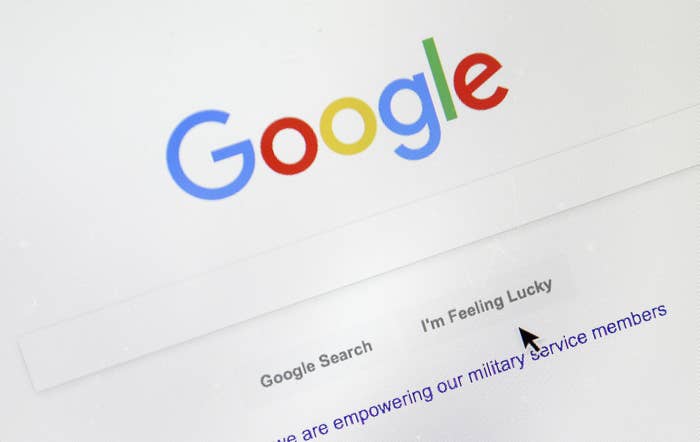
The Department of Justice filed an antitrust lawsuit against tech giant Google on Tuesday, arguing the company unlawfully maintains its monopoly over internet search dollars through anticompetitive practices.
For over a year, the DOJ has investigated Google, a company with a market value of $1 trillion and control of over 80% of internet searches in the country.
In a phone call with reporters, Deputy Attorney General Jeffrey Rosen called Google the "gateway to the internet" and accused it of “exclusionary practices that are harmful to competition."
The lawsuit was filed jointly with 11 state attorneys general in federal court in Washington, DC.
"Two decades ago, Google became the darling of Silicon Valley as a scrappy
startup with an innovative way to search the emerging internet," reads the complaint. "That Google is long gone."
The lawsuit argues that by making itself the preset search engine on Android phones and paying billions to other companies — such as Apple, LG, and Motorola — to ensure it is the default search engine on their products, Google has cut off other competitors from ever having a chance to take a foothold in the market.
"Google no longer competes only on the merits but instead uses its monopoly power – and billions in monopoly profits – to lock up key pathways to search on mobile phones, browsers, and next generation devices, depriving rivals of distribution and scale," Attorney General Bill Barr said in a statement. "The end result is that no one can feasibly challenge Google’s dominance in search and search advertising."
The European Union has filed repeated antitrust lawsuits against Google since 2010.
In recent years, Google has accounted for 95% of all search queries on mobile devices. The DOJ argues that this stifles innovation and customer choice, but Google says it's the customers who are choosing.
"Today’s lawsuit by the Department of Justice is deeply flawed," said a Google spokesperson. "People use Google because they choose to — not because they're forced to or because they can't find alternatives."
Google has published an extensive response to the DOJ lawsuit, arguing that it is not preloaded on many devices and that it plans to fight the case.
"This lawsuit would do nothing to help consumers," it reads. "To the contrary, it would artificially prop up lower-quality search alternatives, raise phone prices, and make it harder for people to get the search services they want to use."
For months, Barr has publicly spoken about his Google investigation. Rosen announced that Barr chose to focus on Google and other tech companies after "broad bipartisan concerns" raised during his Senate confirmation hearings about the concentration of tech companies and their power.
President Donald Trump also baselessly accused Google last year of interfering in the 2016 election, tweeting "watch out Google" and "Google should be sued."
Wow, Report Just Out! Google manipulated from 2.6 million to 16 million votes for Hillary Clinton in 2016 Election! This was put out by a Clinton supporter, not a Trump Supporter! Google should be sued. My victory was even bigger than thought! @JudicialWatch
But it's not just the Trump administration who has been pushing for this. Sen. Elizabeth Warren has led progressive politicians in speaking out about the monopoly of tech companies.
"Two things can be true at the same time: Bill Barr is a corrupt Trump crony who should not be the Attorney General and the Justice Department has the power to pursue a legitimate, long-time coming suit against Google for engaging in anti-competitive, manipulative, and often illegal conduct," wrote Warren in a Facebook post Monday. "The case against Google is clear and it must move forward without any political interference from AG Barr or Big Tech’s army of lobbyists."
Accusing social media and tech companies of "bias" or supposed political censorship has been a constant claim of the right, including from the president, whose own posts have been repeatedly flagged by Twitter and Facebook for spreading disinformation.
"This case has nothing to do with that subject," said Rosen. "The antitrust case is very separate from the questions about social media and some other technology issues that are out there about skew or bias."
The DOJ's announcement comes just two weeks before the presidential election. But Rosen rejected the suggestion that the lawsuit was rushed out before the election.
"If anything, this is a situation where we might have preferred to be quicker, but we wanted to make sure we’ve done the work that’s necessary," said Rosen.
The last major antitrust lawsuit into a tech monopoly by the DOJ was Microsoft in 1998, the same year Google was founded.
"We could lose the next wave of innovation," said Rosen, "If that happens, Americans may not get to see the next Google."
